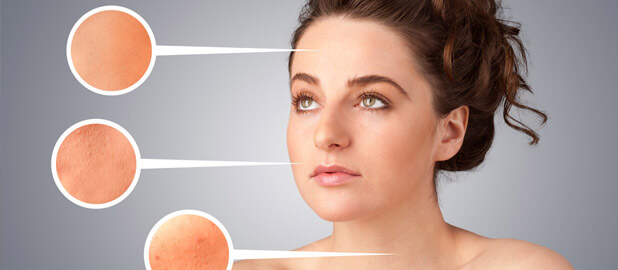
by AmyPlano | Jan 1, 2014 | Truth Bomb
Why am I so tired? Fatigue and PCOS
Do you feel tired all the time? Lots of people do. It’s a sign of our overbooked times.
But fatigue is also one of the leading symptoms reported among women with PCOS.
Getting your energy back could be simpler than you think. Start by seeing if you can relate to the top 3 causes of fatigue.
The top 3 reasons for fatigue
For PCOS and non-PCOS women alike, the most common reasons for feeling tired are about daily habits.
1. What you eat. Reaching for caffeine and sugar can backfire, leaving you more fatigued as your blood sugar levels fluctuate wildly. Instead, go for a balanced, healthy diet replete with fruits, vegetables, and lean protein. “Most people feel like they’re less tired if they eat a healthy diet,” says J. Fred Ralston Jr., MD, past president of the American College of Physicians. “Eating healthy also means you’ll carry less weight, and obesity is a big contributor to fatigue.
2. How much you sleep. You saw this one coming, right? Many people don’t get enough sleep. If you’re one of them, avoid caffeine and alcohol in the hours just before bedtime, turn off the TV before bed, and keep your bedroom quiet and restful.
3. How much you exercise. This is the biggie, Ralston says. His favorite prescription for plain old tiredness is regular, vigorous exercise. Finish at least three hours before bedtime, so you have time to wind down.
If you think that exercise would just make you more tired, there’s good news: Exercise breeds energy. Almost all the studies that have looked at this question have found the same thing: Sedentary people who start exercising feel much less fatigue than those who stay idle. It’s one of those surprising truths: move more and you’ll get more energy.
Ralston recommends getting 40 minutes of exercise at least four days a week, to get you going.
Do that, and a month from now, you should notice some improvement. Keep with it for 3 to 6 months more, and you should feel much better.
If you follow your exercise prescription for at least a month — and you’re also making enough time for sleep — and you’re still feeling lousy, look into other causes, Ralston advises.
The future is now: Fight fatigue today
Self care is important for everyone, but especially for women with PCOS. In order to fight fatigue, begin by addressing the causes listed above: modify your diet and nutrition intake, get enough sleep, and implement a regular exercise plan.
When you tackle these steps, you’ll notice a difference almost immediately. With or without PCOS, you’ll feel happier and healthier…and fatigue will be a thing of the past, once and for all.

by AmyPlano | Dec 20, 2013 | PCOS and Gestational Diabetes, Truth Bomb, Weight Loss
Who has an increased risk for PCOS?
The main risk factor for polycystic ovary syndrome (PCOS) is genetics. A woman’s risk for PCOS is higher if she’s genetically predisposed to it: that means other women in her family have PCOS, have irregular periods or have diabetes. PCOS can be passed down from either your mother’s or father’s side.
A family history of diabetes may increase your risk for PCOS because of the strong relationship between diabetes and PCOS.
Long-term use of the seizure medicine valproate (such as Depakote) has been linked to an increased risk of PCOS.

by AmyPlano | Dec 14, 2013 | PCOS and Gestational Diabetes, Truth Bomb, Weight Loss
What is polycystic ovary syndrome (PCOS)?
Polycystic ovary syndrome (PCOS) is a common ovulation problem that affects about 5% to 10% of women in their reproductive years.
PCOS is a hormonal imbalance that can make the ovaries stop working normally.
In most cases, the ovaries become enlarged and appear covered with tiny, fluid-filled cysts.
What are the symptoms of polycystic ovary syndrome (PCOS)?
- No periods, irregular periods, or irregular bleeding.
- No ovulation or irregular ovulation.
- Obesity or weight gain (although thin women may have PCOS).
- Insulin resistance (an indicator of diabetes).
- High blood pressure.
- Abnormal cholesterol with high trigylcerides.
- Excess hair growth on the body and face (hirsutism).
- Acne or oily skin.
- Thinning hair or male-pattern baldness.
How can I cope with PCOS?
PCOS can be emotionally trying for women. Those who suffer from PCOS often report feelings of depression, pregnancy concerns, and feeling self-conscious about their appearance.
If you have PCOS, it’s important to remember that you’re not alone — therefore, you shouldn’t go through this emotional journey by yourself.
There are countless resources for women to help them cope with the emotional effects of PCOS. Reaching out for help is truly taking the first step in winning the physical and emotional battles of polycystic ovary syndrome.
If you’re feeling alone in your PCOS journey, please contact me today. For over a decade, I’ve been working with top doctors in women’s health and fertility to design the most comprehensive and effective nutrition programs for women with PCOS.
We’ll make PCOS a minor bump in the road, and get you back to the healthiest version of you.

by AmyPlano | Dec 9, 2013 | PCOS and Acne
Acne and Polycystic ovary syndrome(PCOS)
Because polycystic ovary syndrome (PCOS) is due to abnormal shifts in a woman’s hormonal balance, one of the most common symptoms of the disorder is acne.
Treatment for women with acne is largely the same, regardless of whether PCOS is the cause. Over-the-counter products can help reduce the appearance of acne — in some cases, these products can work in just a few days.
Polycystic ovary syndrome(PCOS) and acne scars
While controlling PCOS-related acne can be easy, dealing with acne scars isn’t always as simple.
Acne scars are stubborn, and no single treatment is best for everyone. However, various procedures can improve your complexion.
I’ve included a few suggestions below that can help reduce the appearance of acne scars.
Some of the best treatments for Polycystic ovary syndrome(PCOS)-related acne scars
- Laser treatments. In laser resurfacing, a laser beam destroys the outer layer of skin. As the wound heals, new skin forms. Less intense lasers cause less damage, but are also less effective.
- Energy-based procedures. Pulsed light sources and radiofrequency devices help create new skin without damaging the outer layer of skin. After several treatments, acne scars may appear less noticeable.
- Dermabrasion. This procedure involves removing the top layer of skin with a rapidly rotating wire brush. Surface scars may be completely removed, and deeper acne scars may appear less noticeable.
- Surgery. In some cases, surgery to remove deeply indented acne scars is an option. A minor procedure, called punch excision, cuts out individual acne scars. Stitches or a skin graft repairs the hole left at the scar site.
- Tissue fillers. Injecting collagen or fat under the skin and into the acne scars can fill out or stretch the skin, making acne scars less noticeable. Results are temporary, so you’d need to repeat the injections periodically.
I have PCOS. What’s the best treatment for my acne scars?
If you have PCOS and are looking for the right solution for acne scarring, you should feel encouraged by the various treatments available. But you might feel overwhelmed by the choices, too.
When it comes to erasing acne scars, just remember that it’s best to have a professional help you choose which treatment is most appropriate for you and your needs.
Always discuss the pros and cons of each procedure with your doctor or dermatologist before pursuing any treatment.




